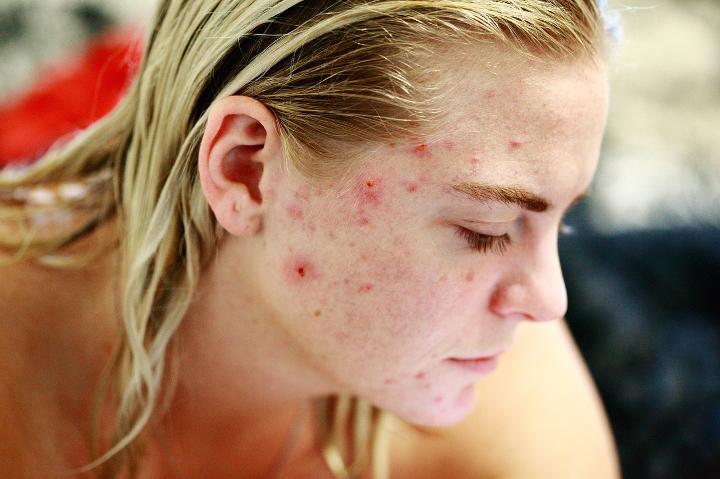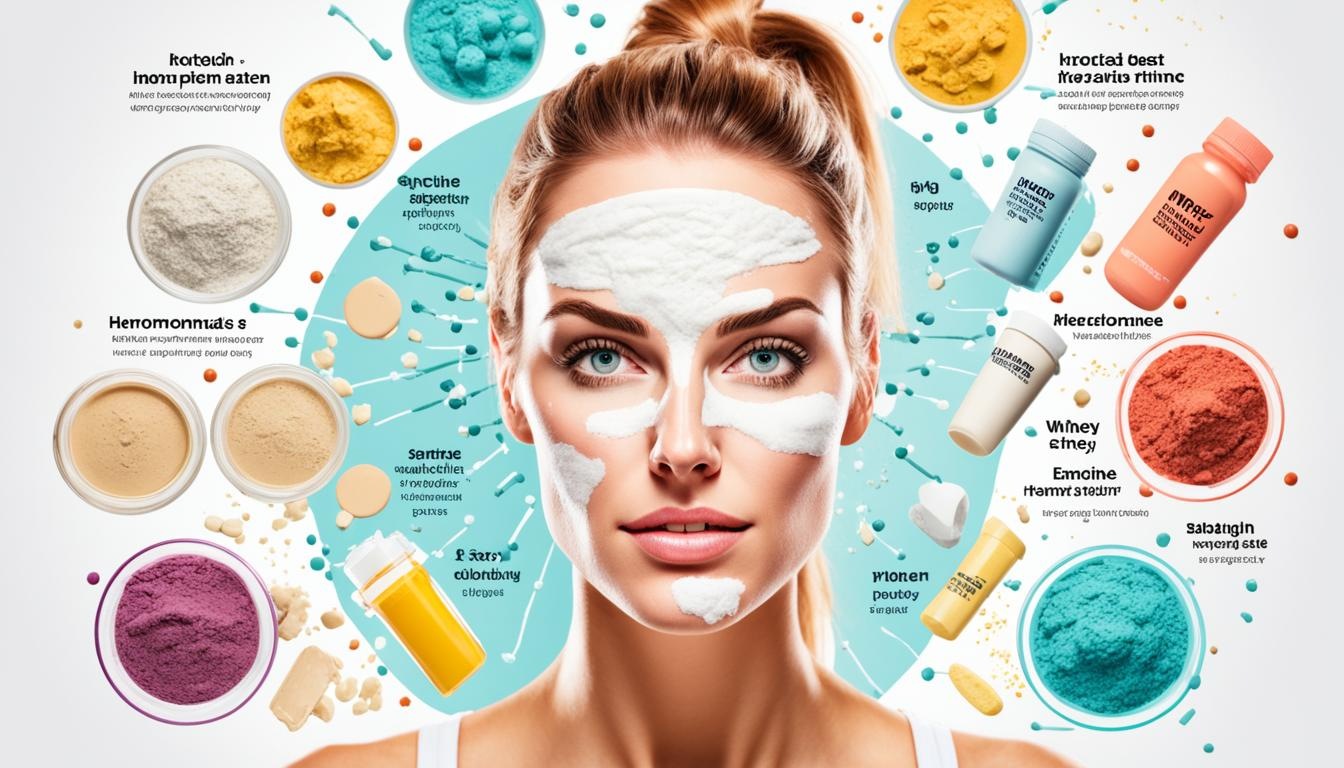Whey Protein and Acne: Is There a Link?

Hi there! I'm here to address a common concern among fitness enthusiasts and those who prioritize their skincare routine - the potential link between whey protein and acne. As a journalist with a passion for health and wellness, I've explored this topic thoroughly to provide you with the most up-to-date information. So, let's dive in and separate fact from fiction!
Whey protein is a widely popular supplement known for its role in muscle building and achieving fitness goals. However, questions have been raised about its impact on acne-prone skin. As you may already know, acne is a common skin condition affecting people of all ages. It's influenced by factors like genetics, hormones, and even our diet.
Now, dairy products, including milk, have been associated with acne development. However, the link between whey protein specifically and acne is still uncertain. In this article, I will carefully examine the research and evidence available to determine whether there is a valid connection between whey protein consumption and acne breakouts. Additionally, I'll provide tips on how to prevent any potential skin problems related to whey protein intake.
Key Takeaways
While acne is influenced by various factors such as genetics and hormones, diet can also play a role.
The association between dairy products, including milk, and acne development has been studied extensively.
Though the link between whey protein and acne is not fully understood, it's essential to consider individual factors and variations.
Personalized nutrition and adopting a skincare routine tailored for acne prevention are key strategies for maintaining clear skin.
Consulting with a healthcare professional can help you make informed decisions about your diet and skincare routine.
Does Whey Protein Cause Acne?
Understanding Acne: Causes and Triggers
Before delving into the potential connection between whey protein and acne, it is important to understand the causes and triggers of acne. Acne is a multifactorial skin condition influenced by various factors, including genetics, hormonal imbalances, and dietary choices. Hormonal fluctuations can lead to increased sebum production, clogged pores, and inflammation, resulting in acne breakouts. Additionally, certain dietary factors, such as high glycemic index foods and dairy products, have been implicated in acne development.
The Dairy and Acne Debate: Scrutinizing the Evidence
One of the ongoing debates in the field of acne research is the potential link between dairy consumption and acne. Several studies have suggested a correlation between dairy intake and acne development, but the specific mechanisms behind this association remain unclear. Dairy products, including milk, contain hormones and growth factors that may contribute to hormonal imbalances and inflammation, exacerbating acne symptoms. However, the evidence is still inconclusive, and further research is needed to establish a definitive relationship between dairy and acne.
Can Whey Protein Trigger Acne?
As a derivative of milk, whey protein is often implicated in the development of acne. Whey protein is a popular supplement among fitness enthusiasts and athletes, but its potential impact on skin health has raised concerns. Theoretically, whey protein may influence acne development due to its hormonal effects and the presence of growth factors. However, the research on the direct link between whey protein and acne is limited and conflicting.
Examining Clinical Studies and Anecdotes
To gain a better understanding of the relationship between whey protein and acne, both clinical studies and anecdotal evidence need to be considered. While some studies have suggested a potential association between whey protein consumption and acne breakouts, others have found no significant correlation. Furthermore, anecdotal reports from individuals who have experienced acne flare-ups after consuming whey protein also add to the ongoing discussion.
Although the research is inconclusive, it is essential to recognize that individual responses to whey protein may vary. Some individuals may be more susceptible to the potential acne-triggering effects of whey protein, while others might not experience any adverse effects on their skin. If you are concerned about the impact of whey protein on your skin health, it is advisable to consult with a healthcare professional or dermatologist.
Investigating Whey Protein and Hormonal Influence on Acne
In this section, we will delve deeper into the potential hormonal influence of whey protein on acne. Understanding the link between whey protein consumption and hormonal changes can provide valuable insights into the correlation between whey protein and acne development. By analyzing the available research, we can uncover the effects of whey protein on hormonal balance and how it may contribute to acne breakouts.
Interpreting the Research on Whey Protein and Acne Link
Various studies have investigated the relationship between whey protein and acne to determine if there is a correlation. While the results are not conclusive, research suggests that whey protein may indirectly affect hormones that play a role in acne development. Whey protein contains essential amino acids, which can stimulate insulin-like growth factor 1 (IGF-1) production in the body. Increased levels of IGF-1 may contribute to excess sebum production, clogged pores, and inflammation, all of which can lead to acne.
Furthermore, whey protein has been found to raise insulin levels in some individuals. Insulin, a hormone responsible for regulating blood sugar levels, has also been implicated in acne formation. Higher insulin levels may stimulate the release of androgens, such as testosterone, which can increase sebum production and contribute to acne.
It's important to note that individual responses to whey protein can vary. While some individuals may experience acne flare-ups after consuming whey protein, others may not notice any adverse effects on their skin. The interaction between whey protein and hormones is complex, and more research is needed to establish a definitive causal relationship.
Personalizing Nutrition: Tailoring Your Diet for Acne Prevention
Although the relationship between whey protein and acne is still being researched, individuals can adopt personalized nutrition strategies to promote clear skin and prevent acne breakouts. Adjusting your diet in the following ways may help minimize the potential acne-inducing effects of whey protein:
Choose alternative protein sources: If you're concerned about the impact of whey protein on your skin, consider incorporating plant-based protein sources into your diet, such as pea protein, soy protein, or hemp protein. These options provide essential amino acids without the potential hormonal effects of whey protein.
Balance macronutrients: Maintaining a balanced diet that includes a variety of nutrient-rich foods can help support overall skin health. Focus on consuming adequate amounts of fruits, vegetables, whole grains, and healthy fats while monitoring your protein intake.
Monitor dairy intake: While the relationship between dairy consumption and acne is still debated, some individuals may find that reducing their dairy intake, including whey protein supplements, helps improve their skin's appearance.
Consult a healthcare professional: If you're experiencing persistent acne breakouts or are concerned about the potential effects of whey protein on your skin, it's always advisable to seek guidance from a qualified healthcare professional or registered dietitian. They can provide personalized recommendations based on your specific needs and goals.
By tailoring your diet and considering personalized nutrition strategies, you can make informed choices regarding your protein intake and help prevent acne breakouts associated with whey protein consumption.

Conclusion
We have explored the potential link between whey protein and acne, considering the available research and evidence. While the exact relationship between whey protein and acne breakout is still unclear, it is essential to be mindful of potential triggers and take proactive steps to prevent skin problems.
From our analysis, it is evident that acne development is influenced by various factors, including genetics, hormones, and diet. While some studies suggest a potential association between dairy products and acne, the specific impact of whey protein remains inconclusive.
However, it is crucial to note that skincare practices play a significant role in preventing acne breakouts, regardless of whey protein consumption. Maintaining a consistent skincare routine, including gentle cleansing, moisturizing, and avoiding harsh or comedogenic products, can help keep your skin healthy and minimize the risk of acne.
Ultimately, when it comes to dietary choices, it is important to listen to your body and make informed decisions based on your individual needs and preferences. If you suspect a correlation between whey protein and acne breakout, consulting a healthcare professional or dermatologist can provide personalized guidance tailored to your specific situation.